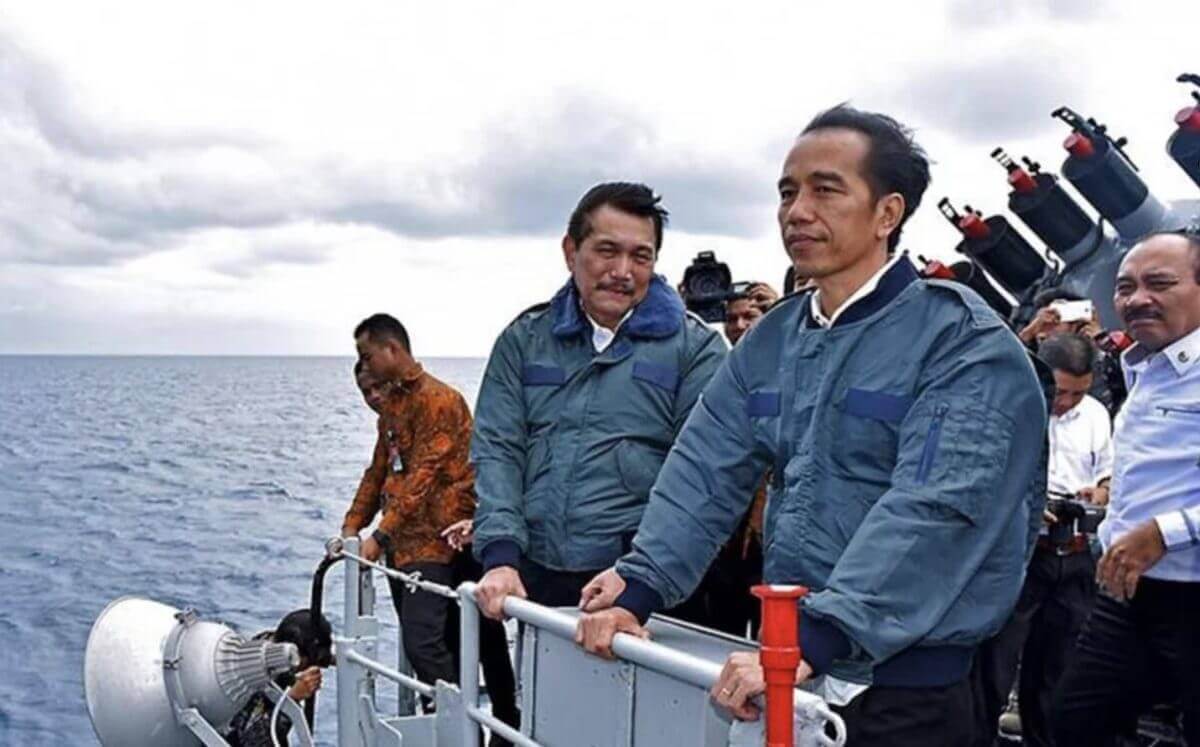Marking a new incident in the troubled waters of the South China Sea (SCS), Indonesia shadowed and confronted a Chinese coastguard vessel within its Exclusive Economic Zone (EEZ). Indonesia claims the Chinese ship spent two days in its waters off the Natuna Islands. Beijing’s nine-dash claims extend to areas the archipelago nation considers its sovereign waters, around Natuna Islands. However, unlike Vietnam, Philippines, Brunei, and Malaysia, Indonesia does not perceive itself as a littoral state in the SCS dispute.
Speaking on the most recent episode, Bakamla, the Indonesian Maritime Security Agency said it“detected Chinese ship 5204 entering Indonesia’s exclusive economic zone” last week. Furnishing details on the confrontation, Aan Kurnia, the chief of the Indonesian Maritime Security Agency, said, “We asked them to move out as it was Indonesia’s EEZ. But they insisted that it is China’s nine-dash- line territory. Our officers at the vessel argued with them until they moved out.” He added that “the Chinese coast guard vessel finally left the North Natuna Sea on Monday at 11:20 am”.
In the aftermath of this event, Indonesian Foreign Ministry spokesman Teuku Faizasyah said that the government sought an explanation from Beijing and “reiterated to the Chinese deputy ambassador that Indonesia’s exclusive economic zone does not overlap with Chinese waters”.
China’s growing assertiveness in the region is worrying members of the Association of the Southeast Asian Nations (ASEAN). Regarding the discussion on territorial disputes at the ASEAN annual forum, the members in a draft communique said, “some ministers expressed concerns on the land reclamations, activities, and serious incidents in the area which have eroded trust and confidence, increased tensions and may undermine peace, security, and stability in the region.”
Indonesia, for its part, has been countering increased Chinese presence in its waters since January of this year. Due to rising illegal finishing activities by Chinese boats, Jakarta has deployed fighter jets and additional naval vessels to patrol the region. According to Collin Koh, a research fellow at the Institute of Defence and Strategic Studies, these incidents highlight “the persistent problem Indonesia faces with China refusing to relent on its irredentist claims in the South China Sea based on the nine-dash line, which has already been invalidated in the 2016 award”.
In 2016, a tribunal of United Nations (UN) ruled that China’s claims violate international law. Disregarding the ruling, Beijing has persevered with its claims. Therefore, Koh maintains, “instead of seeing China as more aggressive, perhaps it’s more accurate to describe China as being ‘still aggressive’ despite the last stand-off” with Indonesia.
Jakarta has taken a notably firm stance against Chinese claims, unlike the Philippines and Brunei. In fact, to check China’s activities, Defence Minister Prabowo Subianto indicated Indonesia’s plans to build new military bases around the disputed islands of Natuna.
Indonesia Confronts Chinese Vessel in its EEZ in South China Sea
Indonesian authorities shadowed a Chinese coastguard vessel which is said to have spent two days in Indonesia’s exclusive economic zone.
September 17, 2020

Indonesian President Joko Widodo rides aboard a naval vessel in a December 2018. SOURCE: AFP
